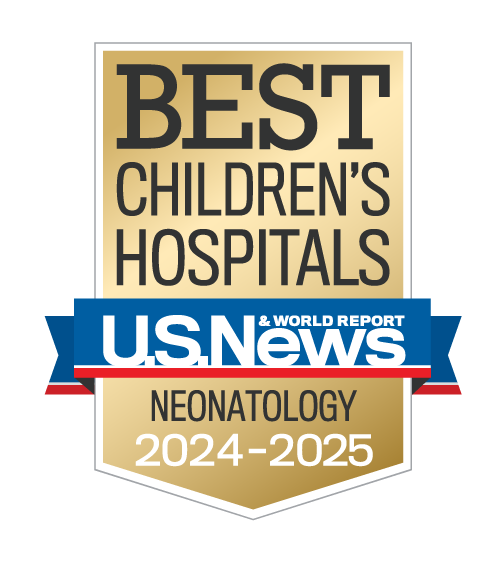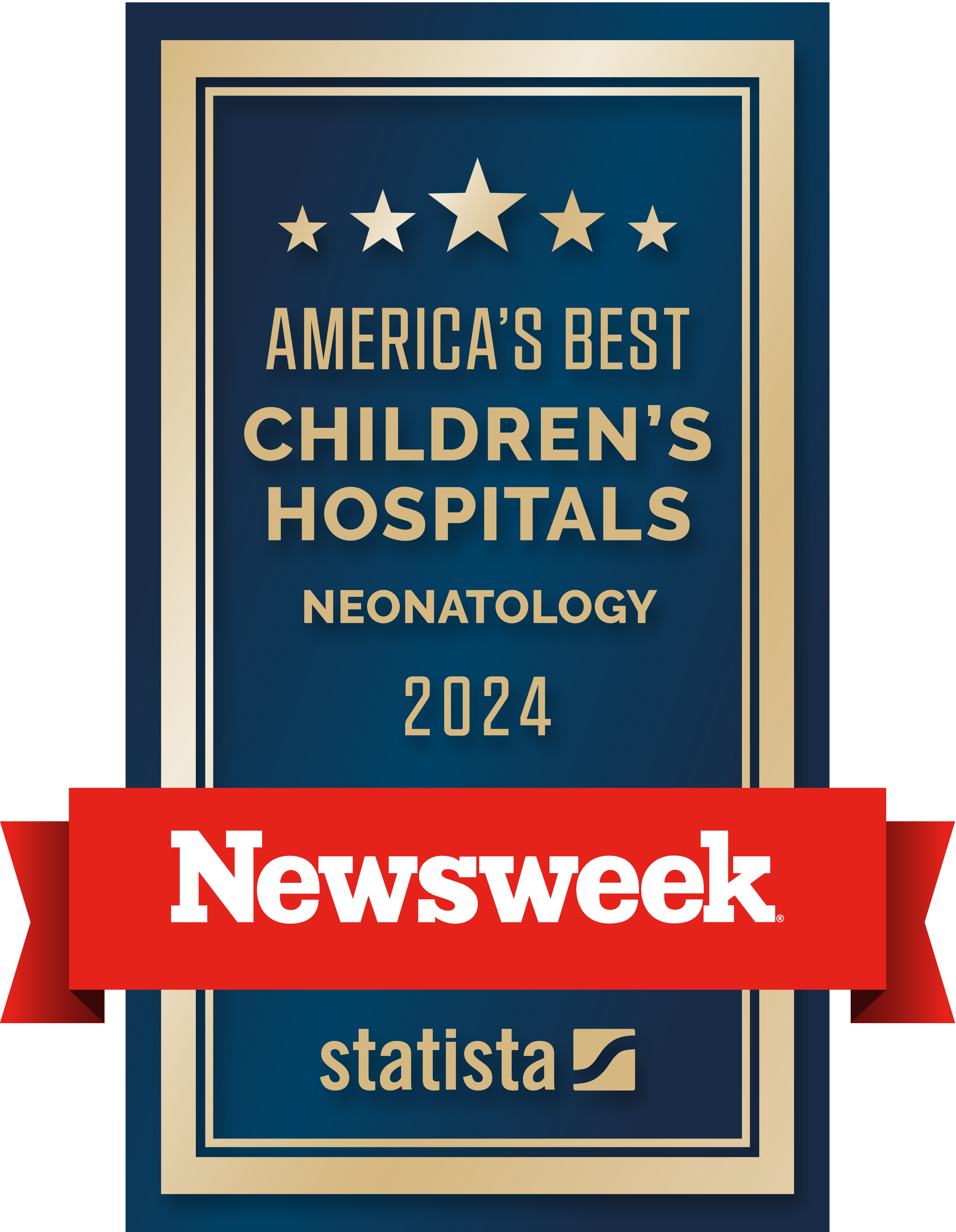Life-saving treatments for newborns
The Neonatal Intensive Care Unit (NICU), in the Division of Newborn Medicine, is a Level III/IV, 30-bed referral center for critically ill infants requiring complex medical and surgical care. Highly specialized physicians, nurses, and support staff collaborate in the care of critically ill infants and their families. A team from multiple specialties within the hospital provides advanced therapies and family centered care for infants from around the region and the world.
We work closely with the Fetal Care and Surgery Center to coordinate both prenatal consultation and postnatal intensive care for infants with a wide range of prenatally diagnosed conditions. Neonatology attendings, fellows, pediatric surgical residents, and either neonatal nurse practitioners or pediatrician hospitalists are available on the unit 24 hours a day.

Lessons from a QI project in the NICU
Implementation of widespread change can be a daunting task to address — but successful change is possible.
Infants admitted to the NICU frequently originate from community hospital special care nurseries and neonatal intensive care units within our network: South Shore Hospital, Southcoast, and Cape Cod Hospital. A significant number of admissions to the NICU are referrals from other Level III institutions in the Commonwealth, including Beth Israel Deaconess Medical Center, Brigham and Women's Hospital, and Boston Medical Center. All three institutions are academic affiliates of the Division of Newborn Medicine, and two are sites for Neonatal-Perinatal Fellowship training. Newborns referred from these Level III units, as well as from hospitals throughout New England, the U.S., and internationally, require advanced medical or surgical therapies not available where they were born.
Boston Children's is the first and only hospital in Massachusetts to offer induced hypothermia protocol to prevent secondary brain damage in newborns. This protocol may prevent or minimize the long-term consequences of brain injury due to loss of oxygen at birth, such as cerebral palsy, and cognitive and visual impairments.
The highest standard of care
At Boston Children's Hospital, we believe that patients and families deserve to know whether the hospital where they have chosen to receive their care meets the highest standards and is committed to excellence. Through our Program for Patient Safety and Quality, we continually monitor and improve the care we provide to our patients.
Since the diseases and chronic conditions that affect children and adolescents are quite different from those of adults, it is often not appropriate to use adult measures to evaluate the quality of pediatric care. That’s why we have taken a leadership role in developing scientifically sound methods to measure the quality of care provided to all children and adolescents.


